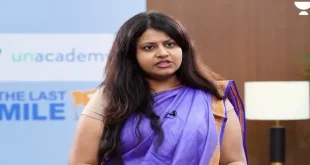
Popularity of PM Modi: The popularity of Prime Minister Narendra Modi is discussed not only in the country but also abroad. The whole world admires his leadership. In this sequence, Britain's famous magazine 'The Economist' has said that generally elite people dislike globally popular leaders, but this is not the case with Prime Minister Narendra Modi and his support is increasing among educated voters.
In an article titled 'Why Indians support Narendra Modi', The Economist said that while Indian Prime Ministers are often associated with right-wing populists like Donald Trump, Modi is not a typical strongman to be expected to win a third term. It is expected.
This is the reason why PM Modi is the most popular leader
'In most places, support for anti-establishment figures like Trump and policies like Brexit are inversely related to university education,' it says. Not in India, which is why he is the most popular leader of a large democracy today.
Citing a Gallup survey, it said only 26 per cent of respondents in the US with university education supported Trump, while 50 per cent of those with less education supported him, but Modi has bucked the trend. The article cites a Pew Research survey showing that 66 percent of Indians with no education beyond primary school level expressed a 'very favorable' opinion of Modi in 2017, but 80 percent of those with more education did not. Gave them his priority.
42 percent Indians supported BJP
After the 2019 general elections, a survey by Lokniti found that about 42 percent of Indians with degrees supported Modi's Bharatiya Janata Party, while about 35 percent of those with only primary-school level education did so. The economist also said Modi's success among the educated did not come at the cost of support from other groups.
PM Modi also fell into the lower class
Like other populist leaders, his greatest penetration has been among lower class voters, says political scientist Nilanjan Sarkar of the Center for Policy Research. Citing the economy as a major factor, the article states that India's strong GDP growth, although unevenly distributed, is rapidly increasing the size and wealth of the Indian upper-middle class.
'India needs strong governance'
It said Congress enjoyed strong support among the upper-middle class in the late 2000s, but the recession and a series of corruption scandals in the 2010s changed things. The article says, 'But Modi's tenure has enhanced India's economic and geopolitical position in the world. Some people believe that India really needs strong governance. He pointed to the situation in China and East Asia, whose experience shows that strong governance can overcome barriers to economic growth.
Absence of strong opposition is also beneficial for PM Modi
It says the elite feel that their support for Modi will continue until a credible alternative emerges. According to the article, most of the elite have lost confidence in the Congress and its leader Rahul Gandhi, who is considered racist and unapproachable. It quoted an unnamed senior Congress leader as saying that Modi has 'taken our best ideas' such as distributing welfare payments digitally and 'implemented them in a better way' than his own party. The article concludes with the conclusion that 'a strong opposition is perhaps the only thing that will motivate India's elite to abandon Modi but that is nowhere in sight at the moment.'
 look news india
look news india

